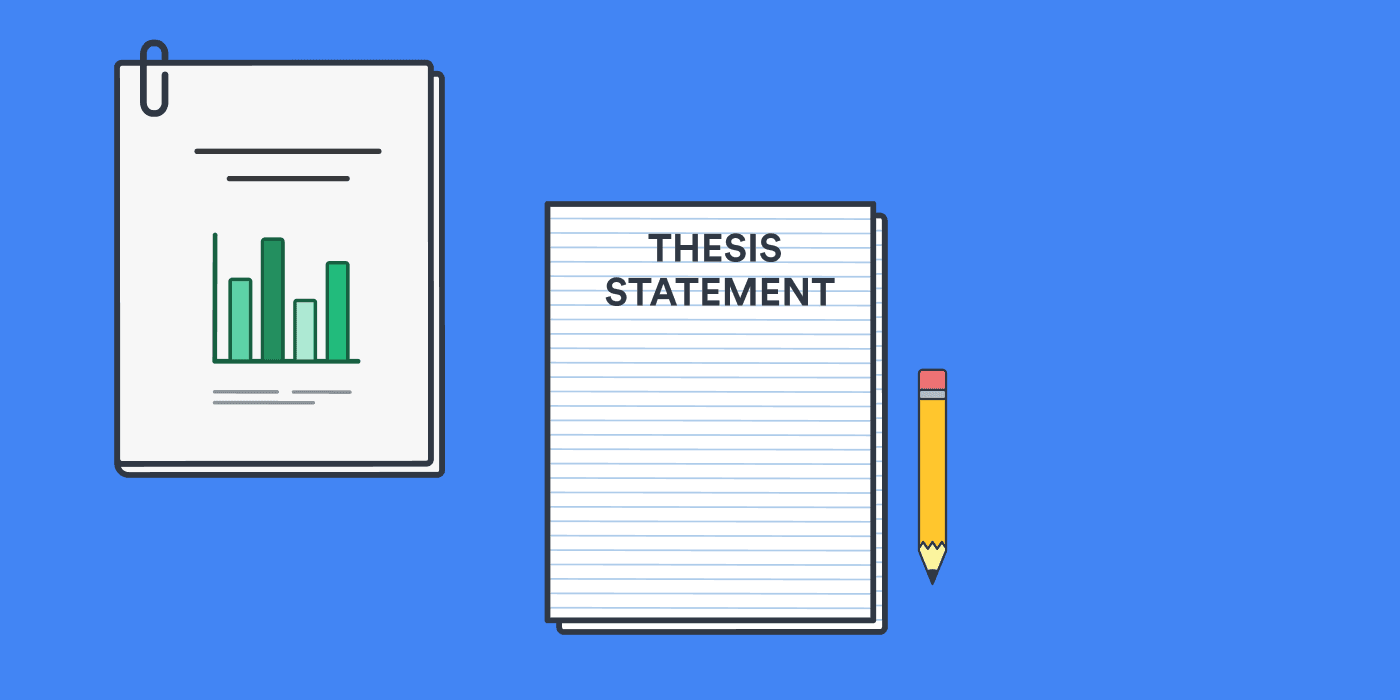Introduction
Crafting the Perfect Thesis Statement For Any Book! Any literary analysis essay must have a thesis statement, especially when examining books or other literary works.
It helps the reader follow your argument and establishes the tone for the entire essay.
The thesis statement acts as the outline for your essay, outlining your position on the subject or topic you are analyzing in a clear and succinct manner. Your essay may lack focus and purpose if your thesis is unclear, and you will find it difficult to interact with the text in a meaningful way.
Writing a thesis is one of the most difficult parts of literary analysis for many students, and it makes sense. The thesis statement should provide a concise synopsis of your argument while yet giving the reader enough information to understand the breadth and depth of your study.
However, writing the ideal thesis doesn’t have to be a daunting undertaking. It can be simple and even pleasurable with the correct mindset and comprehension.
Understanding the Role of a Thesis Statement
Before we dive into the mechanics of crafting a thesis statement, let’s take a moment to fully understand its role in literary analysis.
What is a Thesis Statement?
A thesis statement is a one- or two-sentence summary of the main point or claim you are making in your essay. It asserts your argument and outlines the evidence you will use to support it. A thesis statement is crucial because it clearly communicates to your reader the position you will take and provides a roadmap for your essay. It is typically placed at the end of your introduction, allowing the reader to know immediately what your main argument is.
Why is a Thesis Statement Important?
Without a thesis statement, your essay would lack direction. It would be a mere summary of the text with no clear analysis or argument. The thesis is the guiding force that shapes the way you organize your essay and presents a structured, cohesive argument. When done correctly, a thesis statement demonstrates that you have a clear understanding of the text and are capable of critically analyzing its themes, characters, and literary elements.
A perfect thesis statement will:
- Express a specific argument or claim.
- Provide a sense of direction for the essay.
- Be debatable, meaning someone could disagree with it.
- Be focused on one central idea.
- Be supported by evidence from the text.
Now that we understand the importance of a thesis statement, let’s explore how to craft the perfect one.

Step 1: Analyze the Text
Before you can craft a thesis, you must first thoroughly analyze the book or text you are working with. The analysis is essential because it will inform the argument or claim you will make in your thesis.
Read the Text Carefully
Start by reading the book (or the portion of the book you’re assigned to analyze) carefully. It’s not enough to simply skim through the text. Pay close attention to major themes, motifs, character development, plot structure, symbols, and literary devices such as irony, metaphor, and allusion. These elements will all play a role in your thesis.
While reading, take notes and underline key passages that resonate with you. Ask yourself questions about what’s happening in the story and why. What are the characters’ motivations? How does the setting influence the plot? What social, political, or historical contexts are reflected in the text? The more engaged you are with the text, the clearer your thesis will become.
Focus on Key Themes and Arguments
The next step in your analysis is to identify the central themes of the text. What does the author seem to be saying about human nature, society, love, death, or other universal concepts? Think about the key issues that arise in the story and how they are addressed. Does the text critique social norms? Does it explore existential questions? What is the author’s ultimate message?
For example, if you were analyzing To Kill a Mockingbird, you would identify themes such as racial injustice, moral growth, and the loss of innocence. Once you have identified key themes, you will begin to develop the central argument of your thesis, which will provide a focused examination of one aspect of the text.
Consider the Author’s Intent and Context
Beyond the themes and symbols, consider the author’s purpose and the historical context in which the book was written. What was happening in the world when the author wrote the book, and how might that influence the text? For example, 1984 by George Orwell can be analyzed in terms of its commentary on totalitarianism and surveillance in a post-World War II world. Understanding the context of the text will help you refine your thesis and provide depth to your analysis.
Read More :
Step 2: Narrow Down Your Focus
After conducting a thorough analysis, you may feel overwhelmed by the wealth of ideas and interpretations available. This is why narrowing down your focus is critical in crafting a successful thesis statement.
Avoid Broad or Vague Claims
One common mistake students make when writing thesis statements is being too broad or vague. A thesis that attempts to cover too many aspects of a book will lack depth and focus. For example, a thesis statement like, “In The Great Gatsby, Fitzgerald explores many important themes” is too general and doesn’t provide a clear direction for your essay.
Instead, aim to focus on one or two specific elements of the text. For instance, you could focus on the theme of the American Dream in The Great Gatsby and its impact on the characters’ lives. This would allow you to develop a focused argument that is both specific and debatable.
Pick an Angle
Choose one angle or aspect of the book that interests you and that can be effectively argued in a short essay. This could be a specific theme, a particular character, a symbolic element, or even the author’s writing style. A good thesis will take a stance that can be debated. It should not be an obvious fact but rather an interpretation that requires explanation and evidence from the text.
For example, in Frankenstein, you could choose to focus on the theme of scientific ambition, arguing that Victor Frankenstein’s obsession with creation ultimately leads to his downfall and the destruction of those around him.
Step 3: Formulate a Clear, Concise Thesis Statement
Once you have narrowed down your focus, it’s time to draft a clear, concise thesis statement. Your thesis should be a direct and specific response to the text and should present your argument in a way that invites further discussion.
Be Specific and Clear
A strong thesis statement should be specific and clearly convey the central point of your essay. Avoid vague or broad statements, and ensure that your argument is easily understood. A thesis should answer a specific question about the text, providing a roadmap for your essay.
For example, a specific thesis for Macbeth might be:
- “In Macbeth, Shakespeare uses the theme of ambition to highlight the destructive consequences of unchecked power and the moral decay of the protagonist.”
This thesis is clear, specific, and focused on one aspect of the play, making it easier to structure your essay around this central argument.
Make it Debatable
A thesis must present an argument that others could potentially disagree with. It should not be a statement of fact or a summary of the plot. For example, rather than writing, “In The Great Gatsby, Gatsby is a rich man,” you should write something like:
- “In The Great Gatsby, Gatsby’s wealth and lavish lifestyle ultimately symbolize the emptiness of the American Dream, as his material success cannot bring him the fulfillment he seeks.”
This thesis offers an argument that could be debated, which sets the stage for the rest of your essay.
Include Your Main Points
Your thesis should not only express the main argument but also briefly indicate the supporting points you will use to prove your argument. This is especially useful for more complex arguments that require multiple examples from the text. Think of your thesis as a preview of the body paragraphs to come.
For example, in a thesis on To Kill a Mockingbird, you might write:
- “In To Kill a Mockingbird, Harper Lee critiques racial injustice, the loss of innocence, and the failure of the legal system, using characters such as Scout, Atticus, and Tom Robinson to illustrate the moral complexities of the American South during the 1930s.”
Step 4: Refine Your Thesis
Once you’ve crafted your initial thesis statement, take the time to refine it. Review it to ensure that it accurately reflects your argument and that it is clear and precise. Here are some questions to ask yourself as you refine your thesis:
- Does it clearly state my main argument?
- Is it specific enough to guide my analysis?
- Does it include the key points that will structure my essay?
- Is it debatable, meaning others could disagree with my argument?
If your thesis doesn’t pass these tests, revise it until it does. Refining your thesis may involve narrowing your focus, clarifying your argument, or incorporating additional evidence.
Step 5: Incorporate the Thesis into Your Essay
Now that you have your refined thesis statement, it’s time to incorporate it into your essay. The thesis should appear at the end of your introduction, providing a concise preview of the argument you will make in your essay.
As you write the body of your essay, keep returning to your thesis to make sure your analysis and evidence are supporting the argument you laid out. Your thesis is the anchor of your essay, and every paragraph should contribute to proving or supporting your thesis.

Conclusion
For any literary analysis essay, creating the ideal thesis statement is a crucial talent. You can create a focused and persuasive argument that will serve as the basis of your essay by following the five processes described in this guide: evaluating the material, focusing, developing a clear thesis, honing your thesis, and integrating it into your essay.
Clarity and direction are provided by a well-written thesis, which enables you to interact with the material in a meaningful way and offer a perceptive interpretation. Keep in mind that the thesis is subject to change as your comprehension of the book expands.
You will become skilled at creating thesis statements that enhance the focus, appeal, and intellectual stimulation of your literary analysis essays by following these stages and honing your technique.
















